
身处法学院,业余哲学生,专业摸鱼家。 微信公众号:德默
Philosophy & Love in Trilogy: An Interview with Julie Delpy
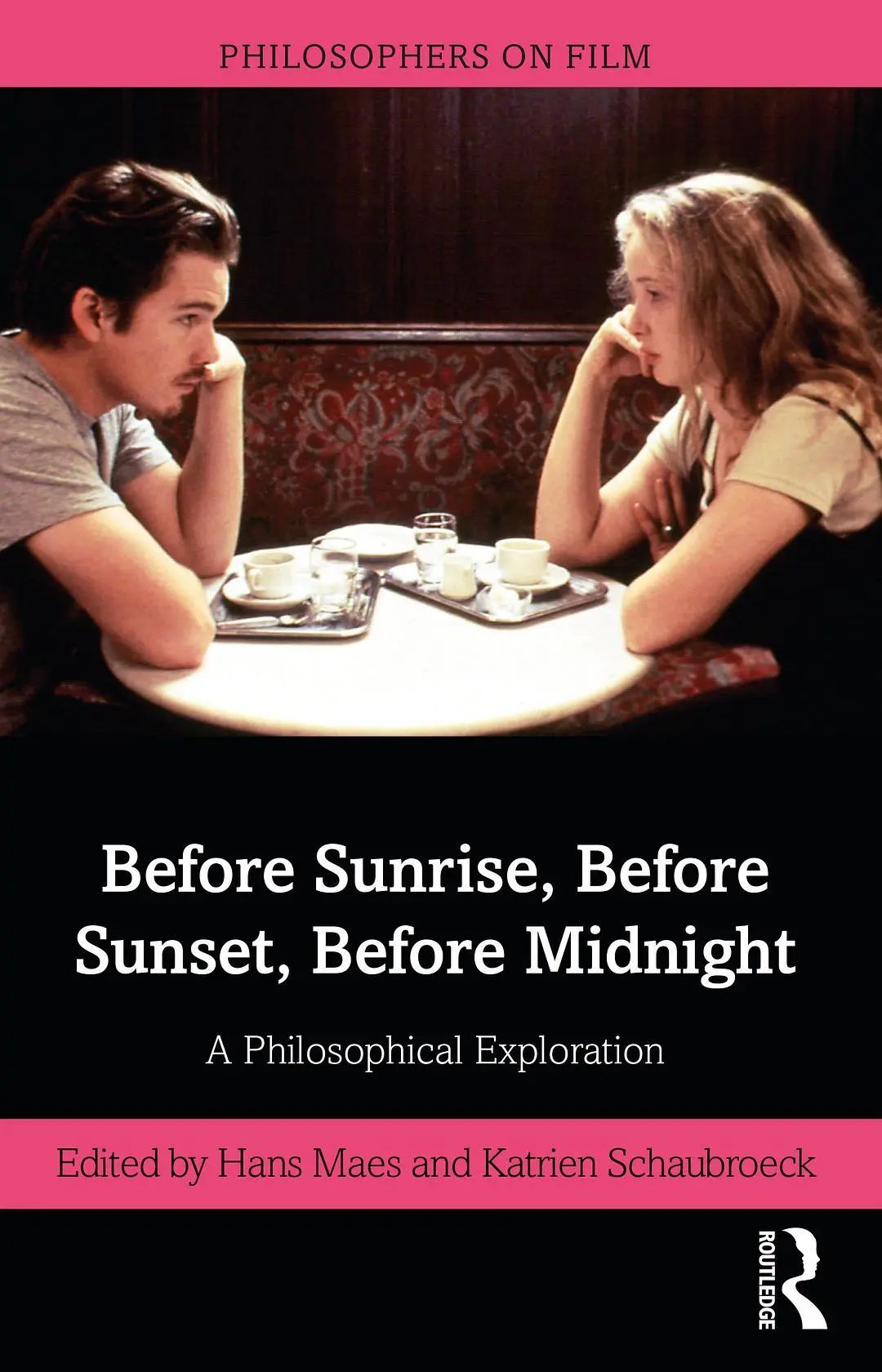
Philosophy is at the heart of the Love in the Trilogy. This interview is excerpted from the book above which philosophizes the three films . A lot of social justice ideas, and it made me even more fascinated by the series and Delpy himself.
Love in the trilogy condensed many of my beautiful imaginations about love, made me think about how to fall in love in an impetuous society, how to deal with the gap and entanglement between ordinary life and romantic fantasy, and also told me an ideal romantic look.
I would say that the 2022 version of Love Before Dawn is anything but: Meet on the train, take a selfie and fuck in the toilet!
How would you describe your relationship with philosophy? Is it something you are interested in or have been interested in?
In France, students study philosophy in their final year of school. For me, it's something I've finally found of interest. I'm also interested in literature, but philosophy is my favorite subject, and in fact, I only got my high school diploma because of philosophy. The other subjects were a mess because I didn't go to school in my final year. I'm making a movie and I don't have time to go to school. The only subject that saved me was philosophy because I read a lot of philosophers and I know a lot about philosophy. So, I got a perfect score of 20. This is unusual, even unheard of. It was even reported in the newspapers! However, I didn't pursue it as an academic study because I went into the film industry and I had to make a living. I don't have time to study or go to school, and I don't have money. I need to make a living because I haven't lived with my parents since I was 17. But I've been reading a lot.
I would say that philosophy is a state of mind. Some people like it, some people don't. Like I have a friend who is very fond of literature but not philosophy. It's a very different thing. I am more interested in philosophy than literature. And in literature, what I like is philosophy-driven literature. Philosophy studies human behavior, but it is a bit more scientific than literature. And that's basically what I like about philosophy.
Is there a philosophical question or a particular philosopher in your life that you recall often?
No. I remember reading a whole bunch of different philosophers in my teens and twenties. This has become part of my thinking to some extent. I read everything. From Plato to Marx to political philosophy to Alain. I don't stop. I remember reading the entire Encyclopedia of Philosophy, which seemed like 5000+ pages. But I don't remember a particular philosopher I liked. At one point, though, I really liked Cioran, a very depressed French philosopher. They're not always happy, philosophers, you know... (laughs).
In Love Before Dawn, Celine and Jesse are both reading when they first meet on the train. It's funny that your character is reading a philosopher's book. The Story of the Eye (Histoire de l'oeil) by Georges-Bataille. Is this your choice?
Yes!
Why that book?
I don't remember exactly why, but I think I was reading it at the time and I really liked it. What's really interesting to me is that this is a book that doesn't translate well in English. Because sexual slang in French can be very poetic, but not particularly poetic in English. Like in French, there are some really cute swear words. You can have beautiful poetry in English, and everything. But in the realm of sex, poets like Rimbaud and Baudelaire created a beauty that just wasn't translated in English. French has a dirty language and is very poetic. It comes from the gutter, from the streets of Paris.
Bataille connects love, sex, and death in several interesting ways. As he once said, lust is identification with life until death. Isn't this idea that one must fully acknowledge death in order to live one's life to the fullest?
You know, even though we weren't credited, most of the first movie was written by Ethan (aka the male lead) and me. I am fascinated by death. Death is all around us. It has been a constant presence in my life. I always joke that the first word I learned was "death" because I found a dead kitten in the trash that my father had thrown away without telling me. My childhood was exposed to very scary things like child deaths, accidents, and very, very dark things.
As a result, I grew up with a constant fear and anxiety about death. But in the original script Richard sent me, there was nothing about death. Ethan and I added a lot about transience and death. So it's kind of my fault that there was so much about death in the first movie, because that's something I talk about a lot.
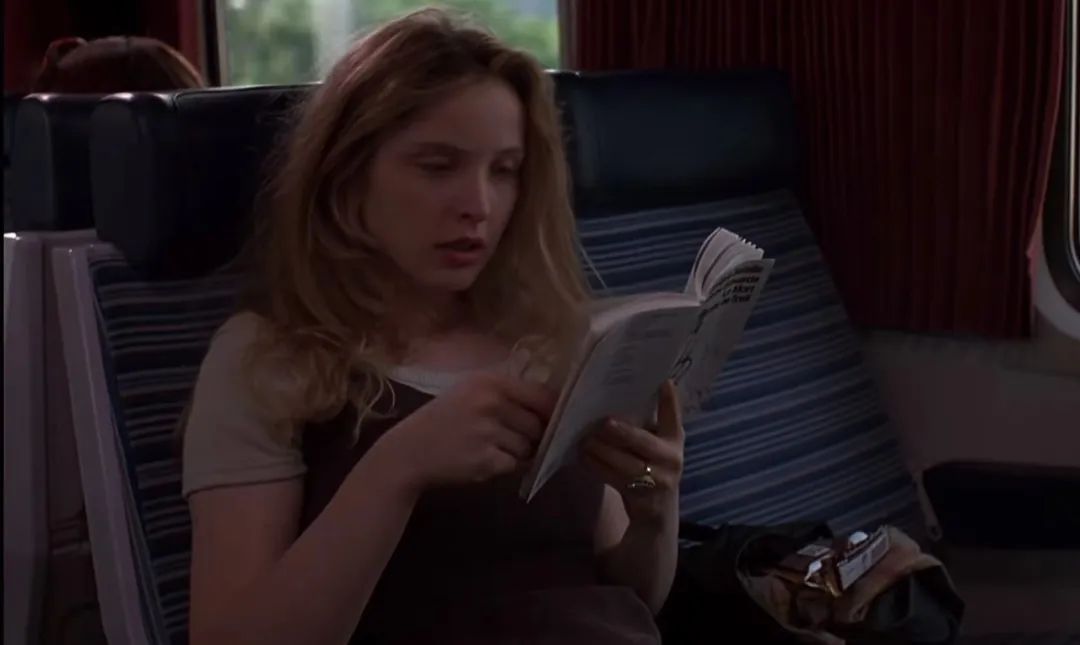
When you made your first film, you couldn't have predicted that it would attract so many admirers. But many later fell in love with the love in the trilogy. Your fans love to think about these films, they write fanfiction, they trace the footsteps of the main characters, and so on. Has something similar happened to you? Have you ever desperately fell in love with a movie? Or other works of art?
No, I wouldn't say that. I love people, but not works of art. The creative process deserves more love than the work of art itself. For me, when I made Love Before Dawn, I felt something was missing in terms of a young woman's perspective. Few stories tell the true story of a young woman falling in love. I stumbled across my diary when I was 12, 15, 20 years old, and half of it was during the filming of Love Before Dawn. How I feel about love, about death, about first love. I put all of this into the movie. But I wouldn't say I've ever fallen in love with a movie. I have a general love for movies, but that includes a lot of them. It's almost like a jigsaw puzzle, but none of the pieces I particularly like. I love a huge colorful puzzle with so many different movies, from Kislowski, to Hitchcock, to Spielberg, to Bergman, to Casavis. I prefer this huge puzzle of different movies. I do like film as a means of storytelling. I love the medium of film. I think it's a great way to tell a story because in film there is vision, poetry, music, philosophy - I always say you can find philosophy in film! Movies put everything together.
As one of the authors of the Love in the trilogy, you played a key role in ensuring the film struck a balance between male and female perspectives. Is it a smooth process, or does it sometimes take effort to strike a balance?
They listen to me like I'm their boss (laughs). Because they know I'm the only woman here, right? They are very smart people. They know they have to pay attention. I think Richard (i.e. the director) immediately understood the moment he met Ethan and me that even in auditions, the role of a woman would be very important. If there's no balance, if it's a male fantasy about falling in love with a woman - I even talk about it in the movie! This will just be another boy's movie. Richard understands that what makes this film special is listening to women too, and that's the balance. So every time I work with them, I can say that they are listening to everything I have to say. Even if I talk crap, they will listen. I know they will listen very carefully.
But have all three films succeeded in giving equal weight to both perspectives? We ask this question because one of our contributors thinks "Before Midnight" seems to be closer to Jesse than Celine. For example, when they argue and Celine storms out of the hotel room, the camera stops on Jesse, not Celine. So we don't see Celine's mood swings. Instead, we take on Jesse's point of view in a series of POV shots.
Well, maybe it's because there were two men in the creative process? After all, Richard is the director, so he decides who to put the camera on. Creation is creation, and director is director. Even though we all contributed to the location, the rehearsal, how we should do this and that... but Richard has the decision-making power. He decided to make the movie more like Jesse. It's normal, he's the director. He chose to tell about how Jesse felt about her runaway, not about how she felt. As a creator and actor, you can only balance as much as possible.
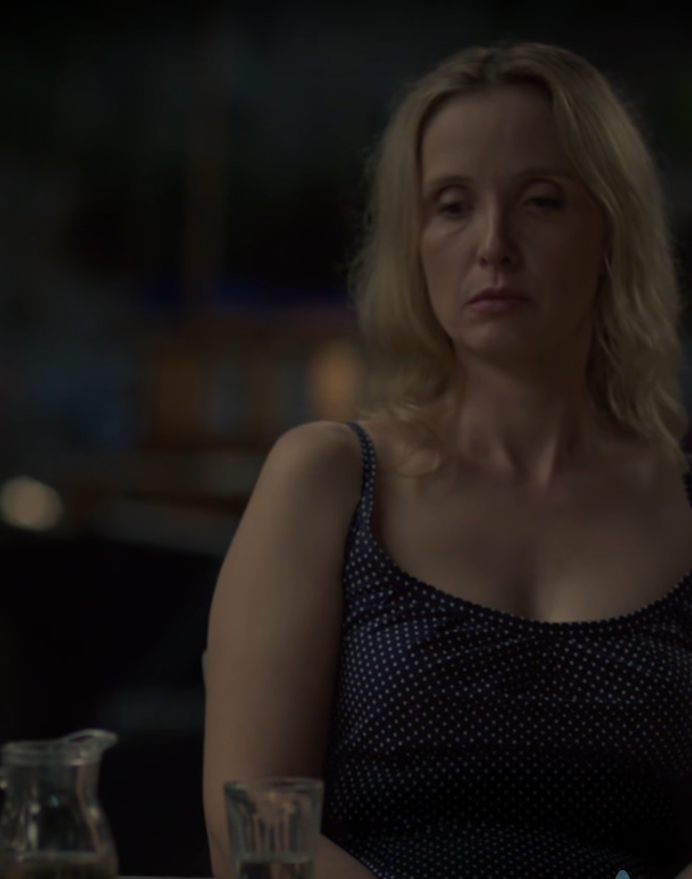
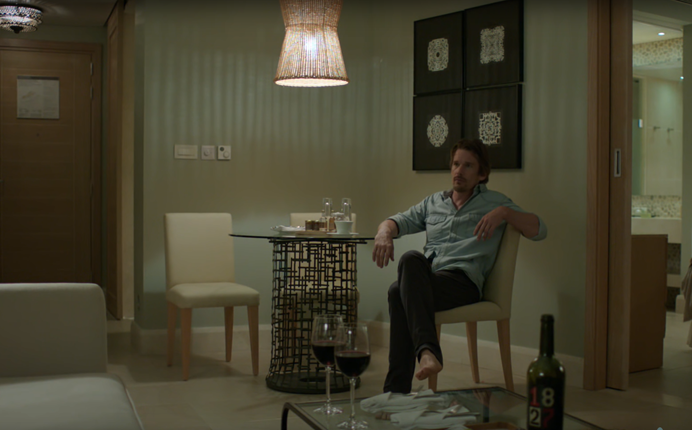
With that in mind, we'd like to know what you think of the so-called "author theory." Would you say that Love in the Trilogy is the work of one author, that is, his personal style and control over all elements of production that give the film its personal and unique stamp? Or is there more than one author in this case?
These films are actually the creation of the three of us. Even Richard would say that. Because he made different movies when he was doing it on his own, and I was doing different movies when I was doing it myself, and Ethan did different things. But when we get together, it's like we're the Beatles (laughs). There's the Beatles, and then Paul goes his way, George goes his way, John, Ringo... It's a silly comparison, but it's funny. My son is obsessed with them, so I'm certainly not comparing our talents to theirs by saying this!
Love in the trilogy is often compared to Linklater's other films. Other Linklater films, but rarely on par with the other films you've written, although there's a lot of fun between the love in the trilogy and Two Days in Paris (2007) and Two Days in New York (2012) of similarities. Although there are many interesting similarities between the three films. How do you see the relationship between these different films of yours? To what extent were you inspired by the Love in the trilogy, and in what ways would you like to try something very different?
I don't want to make anything romantic. Because I put all my romance in love in the trilogy. In Love in Two Days, I wanted to write more about the journey of a woman who couldn't find a way to love, couldn't find peace, and couldn't be defined by a kind of love. In the love in trilogy, a woman and a man, they are limited by this one love. We see them fall in love at 20, reconnect at 30, and possibly disconnect at 40 (or at least, their relationship is challenged). In Love in Two Days, it's more about one person's journey. It's weirder, funnier, dumber, and has family and friends involved. I don't want to turn it into a movie about the same two people. And I wasn't really inspired by Love in the trilogy because they were very, very different.
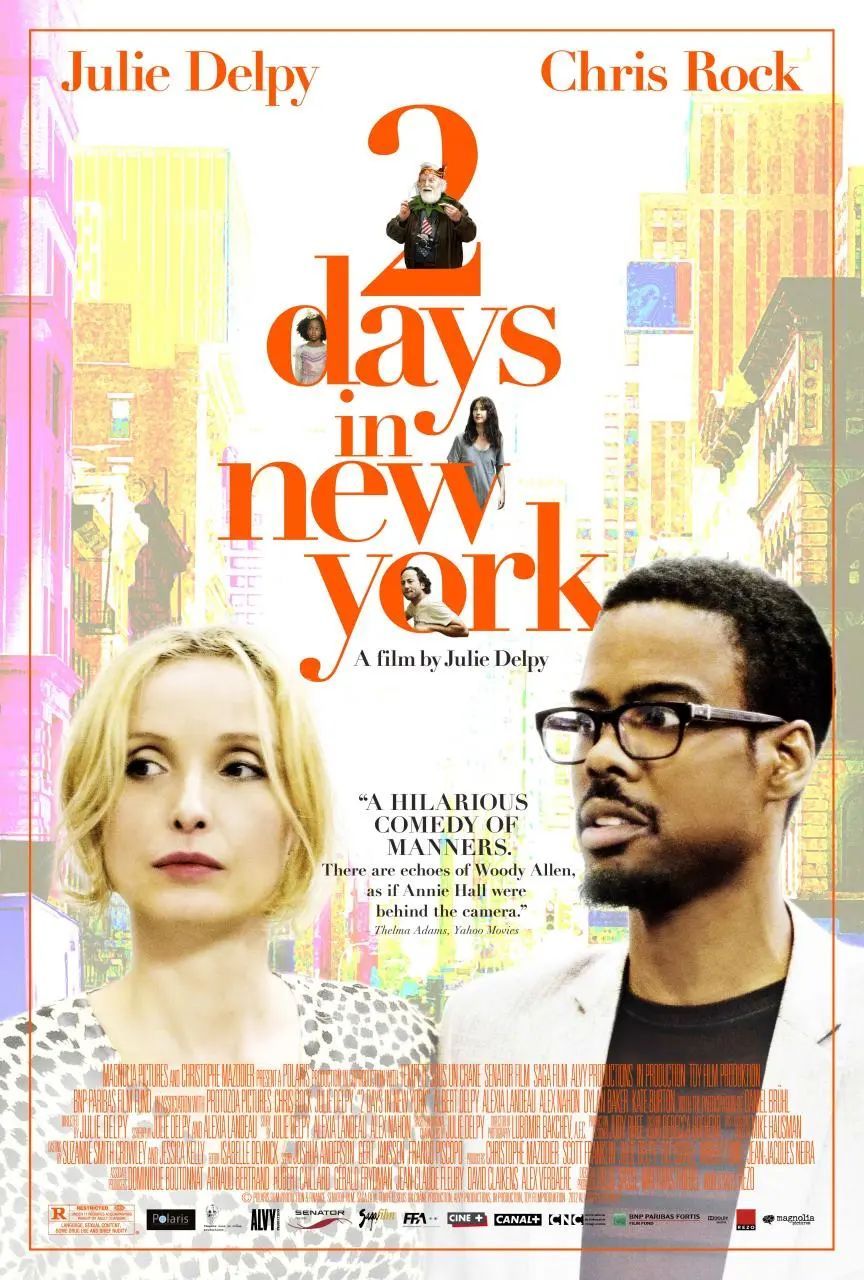
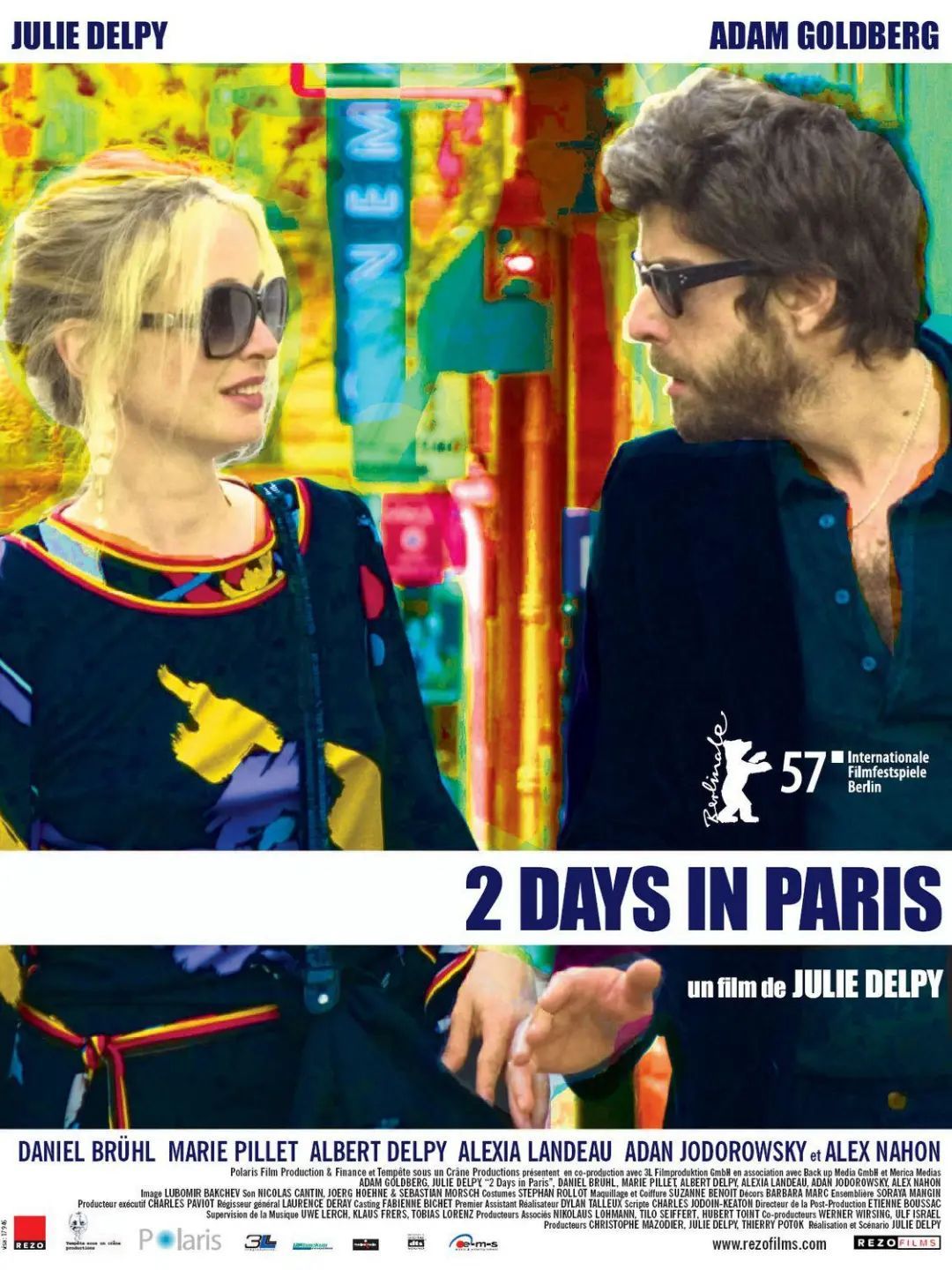
Celine and Jesse do seem to be limited by this one kind of love, although other types of love are acknowledged, especially in Love Before Midnight: love for kids, love for careers, they eat friendship at the dinner table. Do you think romance or romantic love is overrated?
Romance is a very small part of love. You have all kinds of love. My love for my son is as strong as my love for anyone, if not stronger. But this love is not often portrayed. People love to talk about romantic love. But the love for my son is 1,000 times stronger than any love story I've ever experienced. Nobody talks about it. I am willing to give him my kidneys, liver, and brain if he needs it.
In a way, you did make this a theme in your latest film, Lolo, right?
Yes, but that's a comedy. This is not a very serious movie. My next movie is more about real madness, the love of a child. I am going through uncharted territory. For me, that's hard love. I didn't know this until I had my son.
Did you mean "My Zoe"?
Yes, it took me a long time (until I had a son at 39) to realize that being a mother can be as much fun as falling in love with a man. When I was young, I was very romantic. You know, like Romeo and Juliet, this impossible love, eternal love, and so on. But the truth is, as you get older, you realize there are other types of love, and for me, love for children is the most important thing.. My husband knows this and he accepts it (laugh).
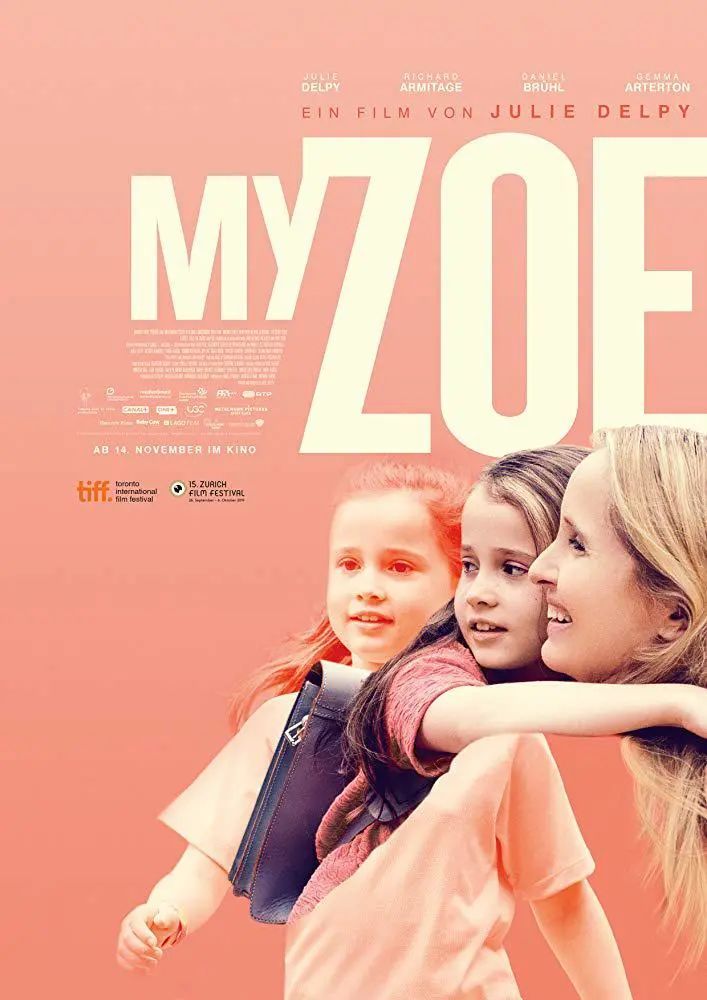
You mentioned Romeo and Juliet and the eternal love story. If you expect your life or your relationship to match a story like this, you're asking for trouble. Most people know this. At the same time, we turn to stories because they help us make sense of the world. This is arguably why filmmakers like you make movies. This is also why the characters in the film are constantly telling each other stories in an attempt to accept reality. So, in your opinion, is the story mostly helping or deceiving? What about the story you helped create, the story of Celine and Jesse? Is that a helpful story or a deceptive fantasy?
Well, we try to make it real. We're not trying to fool people. But this is a fantasy. It never happened to me, it never happened to Ethan. It kind of happened to Richard, but it wasn't like that, it wasn't that romantic. Everyone's had one night stands, but they're not always super romantic. They can also be very unromantic. It's going to be a 20-minute version of Love Before Dawn: They make love on the train, they're done, they leave. boom. It's over.
Will stories do damage? Of course, it's a bit like - it may sound mundane and boring - Instagram. You look at pictures of friends on vacation. You're in Greece, the most beautiful place in the world, and your friend is in Italy, and you see her picture and you think: what the fuck am I doing in Greece, I'm going to Italy? You feel very sad. Then you go home and you see that friend and she says: We have the worst place in Italy, the food is disgusting, it's a dirty place...and you say it. What? What do you mean? Does it look like heaven? These are all expressions of things. It does feel bad. It's like news about celebrities. It makes you feel bad about your life. Or it makes you feel good when you hear they have a miserable life. This is always the idea of representing something unreal. This is storytelling. Instagram is another version of storytelling that people do now. A terrible story, but it exists. It is part of our present world.
What does storytelling do to people? It makes them dream and it makes them suffer. But can we stop telling stories? I do not think so. People live by it. They love it. They like to hear a fantasy. Little girls dream of Prince Charming and they still do. And then they end up with a damn alcoholic or just a normal guy who has been miserable their whole life thinking they didn't get good men. But the reality is very simple. This is the best thing ever. Life is a very simple thing. Usually nothing special in life. 99.99% of people live very ordinary lives. This is the truth. Perhaps "Before Midnight" is the closest thing to life. The first and second relationships are completely romantic fantasies, right? Connect and reconnect. The third, and part of what I liked the most about this one, was about the difficulty of being together. It's not that nice. Some people will say, "Oh, damn, why did you break the romance?" But the truth is: How do you maintain a perfect romantic relationship for ten years? It becomes another thing, you know?
Some believe that "Before Midnight" is actually a melodrama, while the other two films are romantic comedies. After all, romantic comedies usually involve a couple's commitment, while melodramas tend to describe the difficulties of a marriage or long-term relationship. In romantic comedies, love is portrayed as liberating, but in the world of melodrama, love and desire are often repressed. What do you think of the idea that there is actually a trend shift in the trilogy? When making the third film, did you think about possibly changing the nature of the first film? Because what was originally supposed to be a stand-alone romantic comedy has now become the first act of an ongoing melodrama.
Obviously, the last one influenced the content of the first two. This is the final installment on the reality of love. It's a bittersweet thing. It's not easy. It is practically impossible to maintain romantic love. I mean, you can still connect with someone. But it's not that romantic. If we did a fourth installment, it might affect more. So, maybe we'd better stick to just three. Because we don't want to make a drama -- not a plot, but a full drama. That would be too much of a shift in tone.
But that's the reality. Life unfolds and gets harder. You'll get sick more and more, and you'll get older, and the reality is that people will die. Do we want to be like this? I have no idea. But people eventually die, which is something that happens to everyone. No matter how in love you are at 20, no matter how beautiful you are at 30, no matter how lost you are at 40: you will die. This is the sad reality for all of us. It's offensive, it's disturbing, it's wrong, it's unfair. But this is the human condition.
It does. Celine and Jesse often reflect on the human condition in their conversations, and in this regard, the themes that both films address are timeless. But on the other hand, they are also very in keeping with their era. You just mentioned Instagram: The internet and social media didn't exist when Love Before Dawn was made. That's a different world. You can lose a trace of a person for nine years without a trace, which can be hard to fathom for millennials with smartphones and the Internet. Or do you think today's twentysomethings can relate to movies the way we do?
Celine and Jesse could have exchanged phone numbers, but they decided not to. If they exchanged phone numbers, at least they can notify each other when they can't show up. But they decided not to do it out of some totally impossible romantic idea—something Romeo and Juliet, you know. Of course, they didn't meet. It's a setting for a romantic idea -- an impossible romantic idea -- that we took from the first movie and put it in the second movie. It's a great setup that adds some kind of fuel to an impossible love story. The thing is, you can still do it today. You can still say, we don't exchange Instagram, etc. You can still set it this way. But in a way I don't think it matters. You watch movies from the 80's and you're still interested, even if the characters don't have cell phones or internet, and they don't have Instagram. You still go to the story. My son is 11 but he watches movies from the 80s, 70s and 60s a lot. He likes old-fashioned movies, and he really doesn't care about not having those technologies. He actually kind of likes it. He said, "Mom, things were so cool back then."
What about the conversation? Celine and Jesse have truly mastered the art of conversation. But now that everyone is using WhatsApp and Twitter, will this art go away?
No, not necessarily. Do you know what the problem is now? I'm afraid we're getting stupider. Because we only read the title. At least now in the US. I don't know what's going on in Europe, but here, more and more people read only the headlines. We rarely read an article from cover to cover. This becomes a problem because we don't have a deep understanding of things. We have a lot of information, but it's all superficial. How deep can your conversation go if you have only superficial knowledge?
You should do a philosophical book on "Dumbo Evolution," which is the future of humanity. Even more meaningful than "1984". Because I think we're getting stupider. I'm not talking about everyone, but I'm talking about a large percentage of people. Lack of education is a real problem. Especially good free education for everyone. In the United States, many people think that the new crown is a hoax and fake news. So I think we need to be very, very careful because if this number increases, we're screwed. Humanity will also end. We will not succeed because our stupidity will allow us to utterly destroy the planet.
If you are not interested in the depth of things, you cannot have long conversations because you have nothing to say. You're like: Oh, let's take a picture, let's take a selfie. We can do a 2020 version of Love Before Dawn: they meet on the train, they take a selfie, they have sex in the toilet (laughs). Just, I don't think people will like this version. Because young people still crave romance. This is a natural need. People want to fall in love. People don't want superficial things. But society is trying to drag us toward stupidity. Because it is easier to control stupid people than intelligent people who can think for themselves. I think that's going to change because the younger generation -- not the "middle generation" that gets lost in the middle -- but the youngest generation: they want social justice, they want to be heard. But one has to go deep into things.
Basically they have to read philosophy.
The truth is: education is everything. In fact, in France, in the last year of school, philosophy makes all the difference. If you're poor and you go to public school, you also have philosophy. I grew up in poverty, I didn't go to private school, I went to the most basic public school you can imagine, but I have philosophy. I believe that if you study philosophy for a year as a teenager, it will change you forever. It makes you another person. That's it. It's funny because I agreed to do this interview because I'm actually pretty adamant that philosophy should be a required subject in school. Because it makes you think for yourself for the rest of your life. And America needs it more than any other country in the world. Every American should be exposed to philosophy so they can think for themselves. People who have money to go to school, they can study philosophy in school. But it should be a required course. When you are 15, you should study philosophy before finishing your studies.
In France, people are also trying to undermine that and it's one of the most tragic things. They're trying to erase philosophy, and I think that's the weakness of the French. When I go to France, I feel like I'm with a group of people who think for themselves. It's really because most people have to study philosophy for a year whether they like it or not.
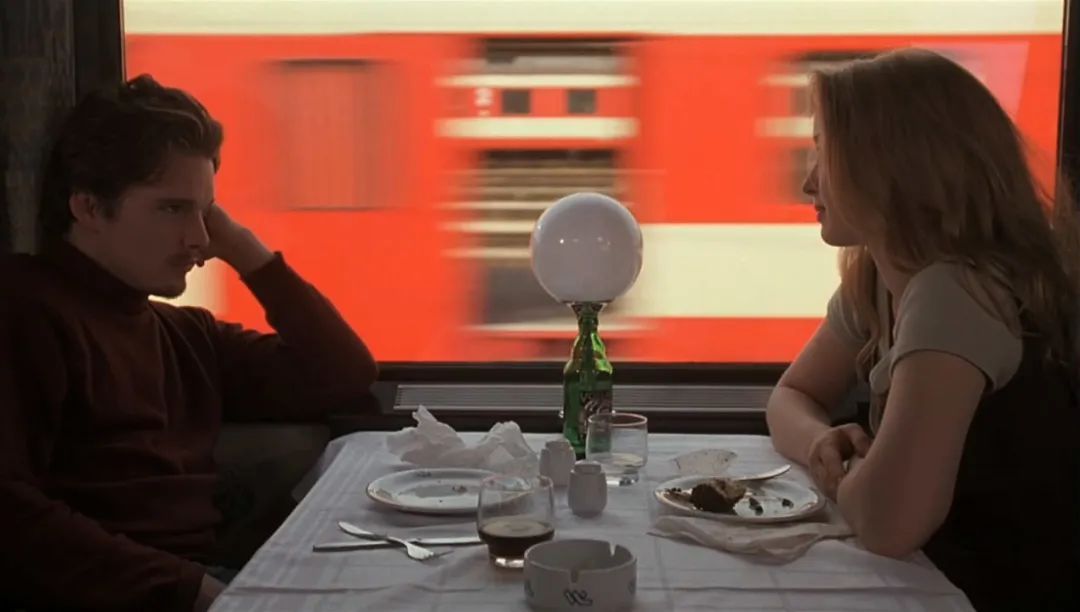
You mentioned social justice, which brings us to another question. How would you respond to those who accuse Love in the trilogy of being a privileged straight white film?
Jesse and Celine are privileged straight whites, yes. But you can't deny that such people exist, can you? That would be ridiculous. And really, I know a lot of people who aren't straight, aren't white, aren't privileged, and they like both. Really, I think it's media bullshit. Because the media, 90% of privileged heterosexual whites, is trying to instill the war between whites and blacks into people's minds. You know, there are real voices on the streets. When you took to the streets during the demonstrations a few weeks ago, there were white people, black people, Asian people, gay people, straight people, trans people, young people and old people. No age, no complexion, nothing. In reality, people are people. And leaders and the media are another matter.
Making a movie about two people who happen to be white and straight in love...that's our story. If someone wants to tell their story, they should tell their story. Obviously, give them a chance to tell a story. Now things are changing. I'm so happy to see two movies where non-white, non-heterosexual, non-privileged people fall in love. And I've seen some. But why should we not talk about personal things. It's easier for me to talk about a white woman falling in love.
We want to end with a more existential question. For you, what constitutes a meaningful life? Is it easy for you to make life meaningful? Do you often feel ridiculous and pointless?
We are everything and we are nothing. This is the paradox of life. We are tiny details, yet we are only details. Every life is within the confines of the universe, and we are nothing. Yet we are so meaningful to some. This is a paradox. Sometimes, this seems ridiculous.
The most absurd thing to me is consciousness: living consciousness, the possibility of thinking, the complexity of thinking. And that's all gone the moment you die - unless you're living in Philip Dick's Ubik, where you can still have a few words with the dead because they're only half-dead, never fully dead. But this is not the case. When you die, you are completely dead, your consciousness disappears. And the only thing left is basically your kids and whatever traces you left behind. And, anyway, that trace will become someone else's story because people will change what you say. People will make it their own. I'm about to adapt Janis Joplin's story - but it won't work out because I'm not licensed, but find her story interesting. There are different versions of her death. No one knows exactly what happened. Some said she had an overdose, but others said she wasn't overdose, she was sick. I have heard many stories. What really happened? She's madly in love with a man in Brazil, but others say it's nonsense, and she's in love with her drug dealer. So, you have all these different stories. And finally, she died. She can't tell us what her story is. So, when you die, you're done, you're done telling your story. Even if you're not a public figure, family members can change your story. To me, it's kind of like a second death. Not only did you die, but now people are telling your story from their perspective, which is totally biased. All this is very absurd. But that's the way it is. And the best thing you can do is raise your kids well. that's it.
Like my work?
Don't forget to support or like, so I know you are with me..
Comment…